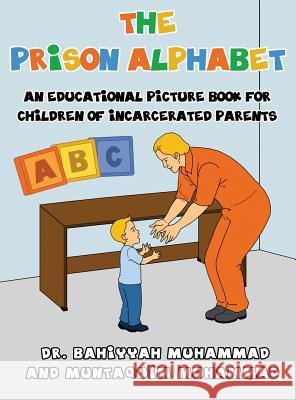The Prison Alphabet: An Educational Picture Book for Children of Incarcerated Parents » książka
The Prison Alphabet: An Educational Picture Book for Children of Incarcerated Parents
ISBN-13: 9781939509123 / Angielski / Twarda / 2014 / 46 str.
More than 2.7 million children in America have a parent in prison. When a parent is incarcerated it can be very difficult to explain that to a child. This unique picture book was created to serve as a conversation starter between adults who plan to talk about parental incarceration with affected children. The Prison Alphabet allows each letter of the alphabet to serve as a topic of discussion. By using the letters of the alphabet, this book is a child-friendly approach to helping young children begin to understand what is going on behind bars with their parent or family member. The motivation for this coloring book emerged from Dr. Bahiyyah M. Muhammad's recognition that children with parents in prison have many questions about what prison life is like. During her extensive interviews with children of the incarcerated, children voiced their curiosity and concern about the daily lives of their loved ones. Specially developed books such as The Prison Alphabet can empower children to gain a better understanding of the experience of their loved ones behind bars, show children with parents in prison that they are not alone, and provide resources for caretakers to use to create opportunities to openly discuss the child's feelings and help them cope with their parents' absence. The Prison Alphabet is divided into two sections: The first section is a picture book and uses the letters of the alphabet, from A thru Z, to explain in a child-friendly manner what life is like inside a prison using terms associated with incarceration. The second section of the book contains a discussion guide to help caretakers and counselors explain parental incarceration to a young child by providing sample responses to children's commonly asked questions about life inside prison. The Prison Alphabet contains illustrations depicting ethnically diverse characters and can therefore be used by any race or gender. Furthermore, it provides opportunities to discuss maternal, paternal and/or familial incarceration.











